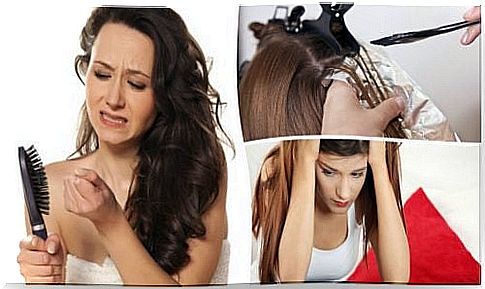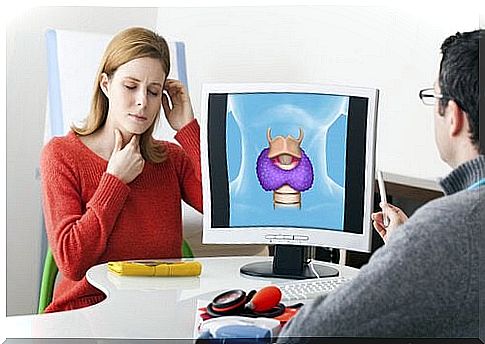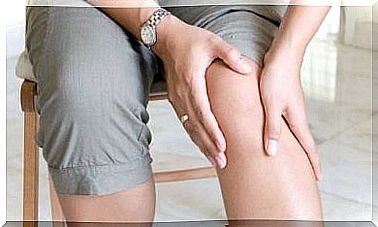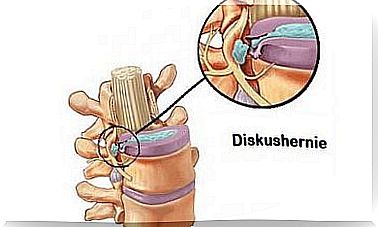You Suffer From Severe Hair Loss: These 7 Reasons Can Be The Cause
Most of the time, a protein deficiency, stress, anemia or genetic factors are the trigger for hair loss.

Excessive hair loss is a very common problem and both women and men of all ages can suffer from it.
Hair loss occurs when the scalp and hair follicles undergo various changes that can be triggered, for example, by certain diseases or environmental factors.
Normally, people lose between 90 and 100 hairs a day. It only becomes a problem when the hair volume is significantly reduced.
In the beginning, the loss of hair often goes unnoticed, the reasons for it often go unnoticed .
However, effective treatment can only be initiated if you know the exact cause. Today’s article is about different triggers for hair loss.
Read on to learn more about it.
1. Lack of protein leads to hair loss

The hair consists to a large extent of proteins. For this reason, a lack of protein in the body is one of the most common causes of dulling or loss of hair.
Because when there is a protein deficiency , the body tries to ration the small amounts of remaining proteins. This mainly affects the growth and strength of the hair.
Advice:
In order to keep the hair strong and full and to counteract possible hair loss, you should eat the following foods:
- Lean meat
- Seeds
- nuts
- legumes
- avocado
- Dairy products
- Eggs
2. Excessive use of chemical care products
Chemical products for beauty care are usually used to give the hair new shine. They can also be used to treat dry hair and split ends.
However, many of these products contain harmful additives. In the long run, these lead to irreversible damage and also promote hair loss.
Hair dyes, bleaching products, and certain shampoos often lead to changes in both the strands of hair and the scalp itself.
What can you do?
- Use masks and hair treatments with ingredients of natural origin.
3. Thyroid disorders

Both an underactive thyroid and an overactive thyroid can affect the hair.
The hormonal fluctuations they cause can be another cause of hair loss.
Both diseases make themselves noticeable through various changes in the organism. If not treated appropriately, they can lead to serious consequences.
What can you do?
- If you suspect you have either of these disorders, you should consult a doctor. This will use a blood test to measure the thyroid hormones in the blood.
4. Hereditary factors
In certain cases, excessive hair loss is not caused by a disorder or illness. But when genetic factors are involved, treatment is much more difficult.
If this is the case, hair loss usually begins as early as the age of 20. In the course of time this becomes more and more.
What can you do?
- Get advice from a specialist who can determine the causes and, if necessary, initiate treatment to stop the loss.
5. anemia

Anemia is a disease that can be caused, among other things, by an iron deficiency. Iron is an essential mineral that the body needs to make red blood cells.
Anemia results in a lack of hemoglobin. This makes the transport of oxygen in the blood more difficult.
Often, one of the first signs of anemia is sudden hair loss. This then comes to a standstill if the disease is adequately treated.
What can you do?
- If you have anemia, you should increase your consumption of foods containing iron. In addition, treatment by a specialist is recommended.
6. Polycystic Ovarian Syndrome
Hormonal disorders can also lead to hair loss in women.
Polycystic ovarian syndrome, for example, leads to large fluctuations in hormones. Therefore, the health of the hair can also be affected.
A specialist must be seen to diagnose and treat this disease. Among other things, polycystic ovarian syndrome can also result in infertility.
What can you do?
- If you have hormone fluctuations, get examined by your gynecologist.
- In addition, resort to hair strengthening products. In this way you can also reduce the negative effects of the disease.
7. Stress
Physical or mental stress is one of the most common causes of hair loss. Even if those affected tend to overlook the effects, the organism suffers greatly from the effects of stress. Serious illnesses can also be the result.
What can you do?
- Try to use relaxation techniques regularly. You should also avoid environments that cause stress.
Did you recognize some of the causes? If you suffer from excessive hair loss, consult a doctor. This can initiate appropriate therapy in good time.









